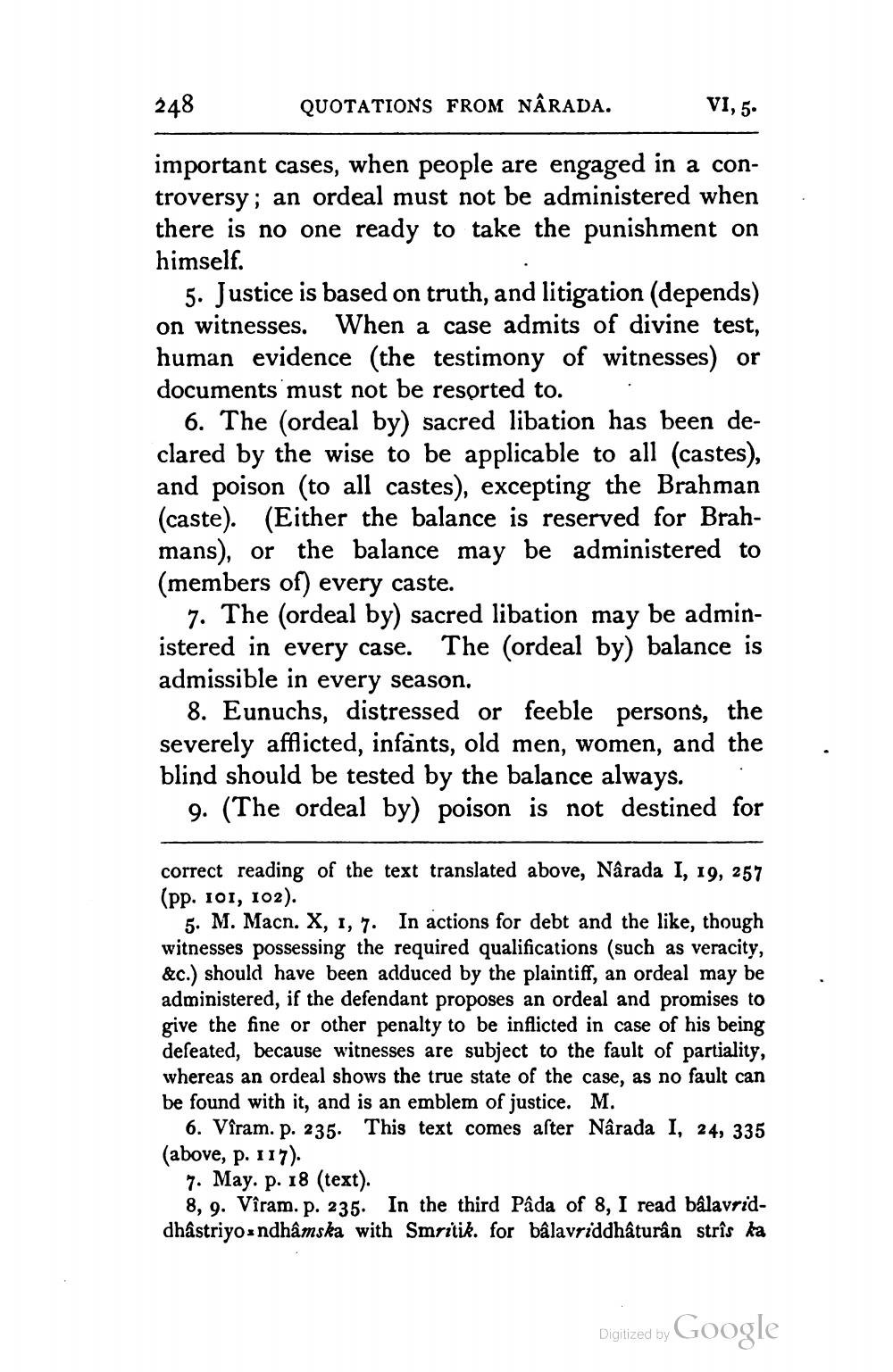________________
248
QUOTATIONS FROM NÂRADA.
VI, 5.
important cases, when people are engaged in a controversy; an ordeal must not be administered when there is no one ready to take the punishment on himself.
5. Justice is based on truth, and litigation (depends) on witnesses. When a case admits of divine test, human evidence (the testimony of witnesses) or documents must not be resorted to.
6. The (ordeal by) sacred libation has been declared by the wise to be applicable to all (castes), and poison (to all castes), excepting the Brahman (caste). (Either the balance is reserved for Brahmans), or the balance may be administered to (members of) every caste.
7. The (ordeal by) sacred libation may be administered in every case. The (ordeal by) balance is admissible in every season.
8. Eunuchs, distressed or feeble persons, the severely afflicted, infants, old men, women, and the blind should be tested by the balance always.
9. (The ordeal by) poison is not destined for
correct reading of the text translated above, Nârada I, 19, 257 (pp. 101, 102).
5. M. Macn. X, 1, 7. In actions for debt and the like, though witnesses possessing the required qualifications (such as veracity, &c.) should have been adduced by the plaintiff, an ordeal may be administered, if the defendant proposes an ordeal and promises to give the fine or other penalty to be inflicted in case of his being defeated, because witnesses are subject to the fault of partiality, whereas an ordeal shows the true state of the case, as no fault can be found with it, and is an emblem of justice. M.
6. Vîram. p. 235. This text comes aster Narada I, 24, 335 (above, p. 117).
7. May. p. 18 (text).
8, 9. Vîram. p. 235. In the third Pâda of 8, I read balavriddhâstriyos ndhâmska with Smritik. for bâlavriddhâturan strîs ka
Digitized by Google




